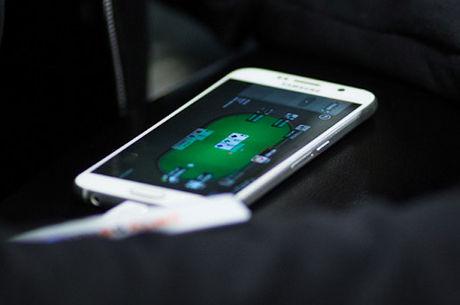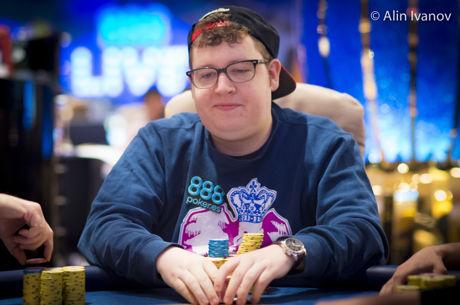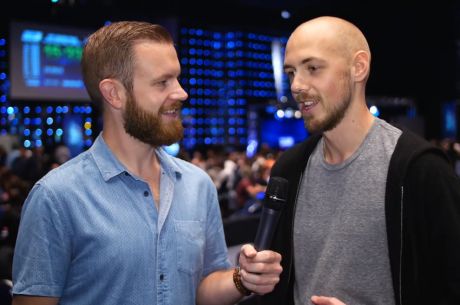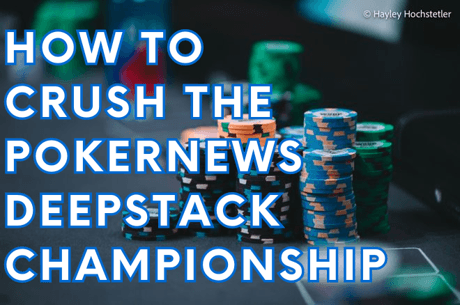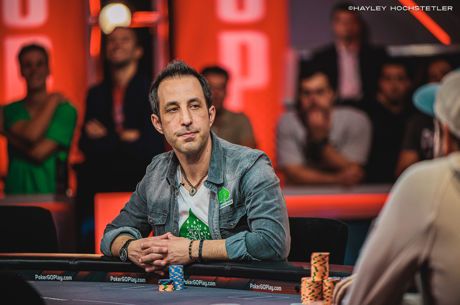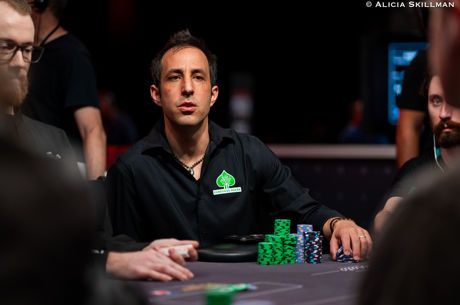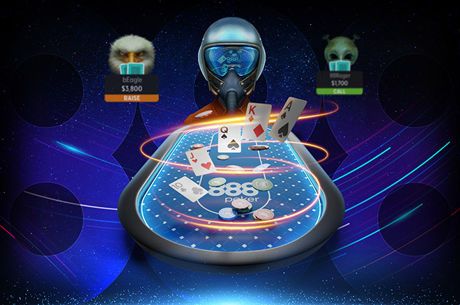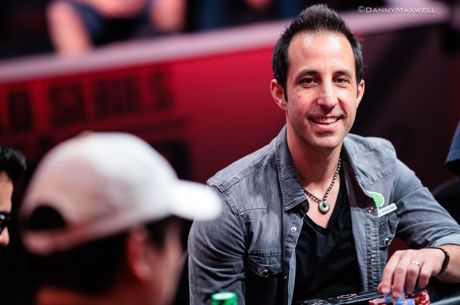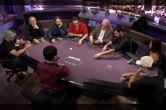Hand Analysis With Dominik Nitsche: When Overbetting Is the Best Option
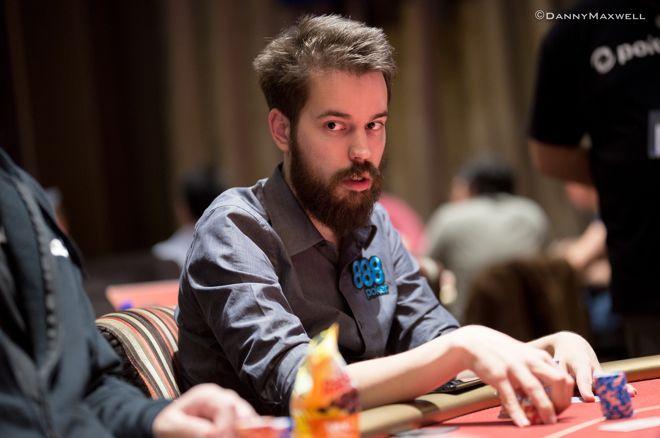
888poker Ambassador Dominik Nitsche has amassed over $11.4 million in lifetime tournament earnings to date, earning multiple titles on various tours. Among those wins are four in World Series of Poker bracelet events, including one last fall in the 2017 World Series of Poker Europe High Roller for One Drop. Today the German pro analyzes an interesting hand he recently played versus another top tournament player, Stephen “stevie444” Chidwick.
Sometimes in poker you find yourself in a spot where you normally would not want to be betting very often, but you just happen to have a very strong hand and actually want to bet. Those are times when you should probably start thinking about overbetting.
Here's a good hand that illustrates that principle, one I played not too long ago in a high roller event against Stephen Chidwick.
Stephen is of course a very strong player who is one of the absolute best (and a good friend of mine, also). We play against each other a lot in these high roller events, and we both play a style in tournament that comes from a lot of study. Stephen, I know, understands pretty much every spot as well as a person can.
Here we were nine-handed at the final table, and both Stephen and I had big stacks. With the blinds 10,000/20,000 (ante 2,500), he had close to 1.2 million to start the hand and was second in chips, while I had about 965,000 to begin and was third.
We were both close to the chip leader while nearly everyone else was much shorter. That meant we didn't have too much incentive to collide with each other, and if we did play a hand we'd probably want to keep the pot small.
That's not what happened, though.
Flopping a Flush
It folded to me on the button where I was dealt Q♥2♥. With a full table of antes and Stephen in the big blind likely not having much incentive to three-bet me too wide, I decided to min-raise to keep the pot small, and Stephen defended with a call.
The flop came K♥10♥9♥. I flopped a flush, and at this point my main thought was to wonder how to get all the money in the middle. That meant when Stephen checked, I was already planning out the rest of the hand.
I had to decide what bet size would make the most sense. I was super strong (with the second nuts) and there was no turn card that would make me fold. I didn't want to bet too small or too big, so I decided on a medium-size bet of just over 40 percent of the pot.
Something even the very best players are not very good at is how ICM affects postflop play. ICM isn't just about knowing what to call off preflop, but it's also knowing how to control the size of the pot after the flop.
On this board, I'm not expecting to get check-raised very often, which theoretically means I can bet quite a bit. But it's worth pointing out, too, that I should be checking a lot of hands on this board, because once I start betting random top-pair hands here, Stephen can start check-raising and punishing me.
On a very connected board like this one, he can have lots of flushes, lots of straights, and some two-pair hands. Meanwhile the hands I'm going to be betting are most likely going to be made flushes or will have some potential to make a flush — e.g., hands like A♥7x or Q♥8x. But hands like AxKx or KxQx without a heart are easy checks for me, and I'd also be checking a lot of other hands that missed.
Stephen called my continuation bet, making the pot a little over 200,000. By calling, his range includes all the flushes and (unfortunately) hands that still have equity against me like A♥Xx, Kx9x, 10x9x, and the like, although those hands are very infrequent. He's going to have a bare king more often (and similar hands).
Bet Sizing on the Turn
Moving to the turn, it's worth keeping in mind that my hand is so strong, it's essentially the nuts no matter what comes next — even when the board pairs, which is what happened here as the turn brought the K♣.
Stephen checked, as I would expect him to do with all hands. His range included all the other flushes, and a lot of full house combinations as well (other than pocket nines or tens, which he probably would've three-bet preflop).
Here is where stack sizes matter a lot. I have 875,000 behind (close to 4.5 times the pot), and need to decide how much to bet. I'd have a closer decision with a smaller flush (say, six-high) in which case I might sometimes check behind, but here I'm too strong not to bet.
I decided that the best way to get all the money in was to overbet right here, and so bet 260,000 or about 1.3 times the pot. With that bet size, if he were to call, that would have left me with just about exactly a pot-sized bet behind on the river.
As noted, he is going to have a lot of KxXx hands here — hands that will be hard to fold — in which case that bet size would put him in a really tough spot. And he knows I could have those hands I mentioned before like A♥7x or Q♥8x (or other random hands with one heart).
There are a couple of other reasons why this big turn bet also works well, both of which go back to the flop. For one, I'm not betting very many hands on that flop (I also don't have the bare king very often). Secondly, his call on the flop means almost all of his hands have a decent amount of equity (including those KxXx hands).
Stevie's Dilemma
Now I'll go ahead and reveal what Stephen actually had — 7♥4♥ for a smaller flush — in order to talk about what a tough spot he was in after I made my overbet.
Some of my hands that I take this line with have him completely crushed. Other hands I have also have equity against his smaller flush (e.g., like A♥Xx).
He can't fold. If he goes all in, he knows I'm not going to be calling him with many worse hands. But if he just calls, what's he going to do on the river when I go all in? Or if another heart comes?
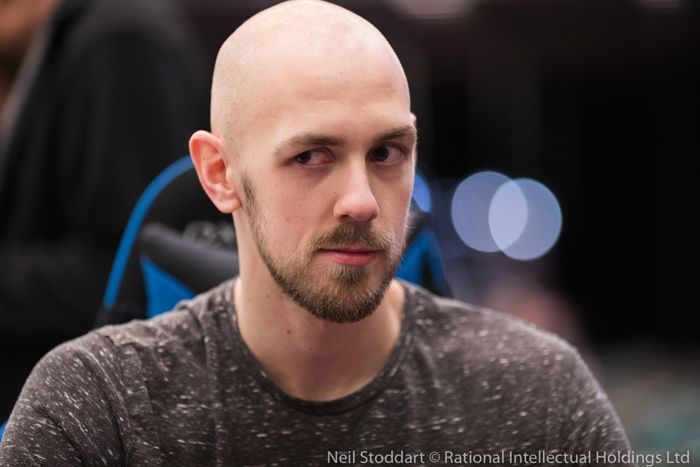
It's a very tough decision, very close between calling or check-raising all in. If I were in his shoes, I might check-call and then check-call again on the river (if it's not another heart or double-pairs the board).
In the hand Stephen took some time before check-raising all in, and I made a somewhat easy call. The river was no matter, and suddenly I was the chip leader and Stephen the table's short stack.
In the moment, I was surprised Stephen check-raised all in, expecting him instead to check-call with most of his hands. But it made sense once I saw his hand.
I should say I never thought he might have a full house after he check-raised all in — I'd expect him to check-call with those hands, hoping I'd improve on the river. I also know Stephen is too good to be jamming with just a naked king there. It would be bizarre for him to overplay trips there, especially considering the ICM implications.
In fact, the more I think about it, he had to have exactly a low flush in order to make that choice. I obviously got very lucky we were dealt those two hands in that situation.
Conclusion
Of course, my overbetting the turn was important here, enabling me to make sure to get all the money in the middle.
I think most people wouldn't have overbet the turn in my situation, picking a more normal bet size (which Stephen would have called). Then it would have been hard to overbet the river with an all-in because of the stack-to-pot ratios.
Going very big on the turn maximized my chances of stacking KxXx hands and weaker flushes. It also ensured I'd win a bigger pot if the river brought another heart and he checked and I'd check behind.
I should add that a lot of what I'm discussing with this hand applies to 50-big blind poker and not 100-big blind or more. (At 100 BBs, a queen-high flush can be a lot tougher to play.)
This hand is about getting all the money in as early as you can when the board lets you do that — that is, when you are in one of those spots where a lot of the time you wouldn't want to bet, but happen to be very strong and thus should be thinking about overbetting.

